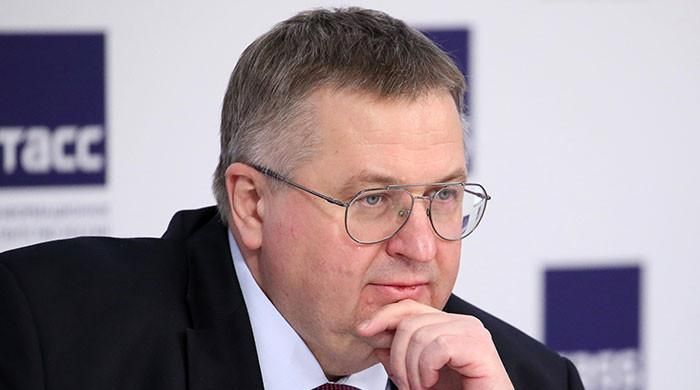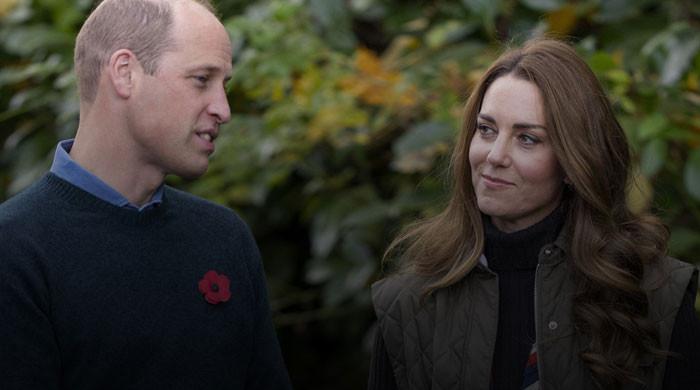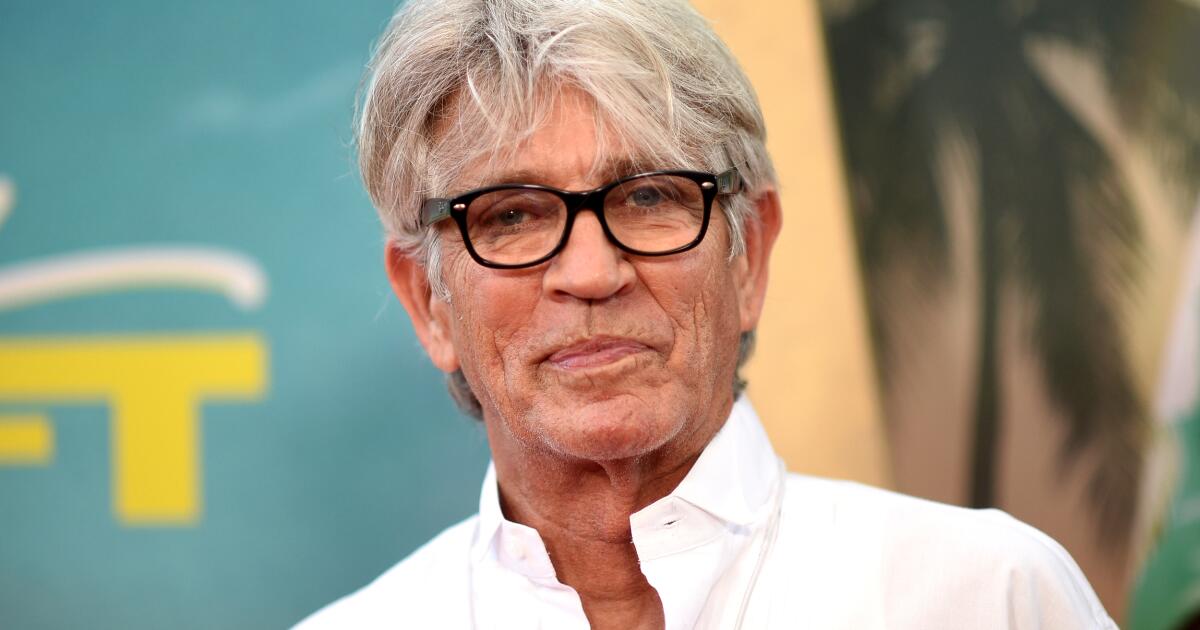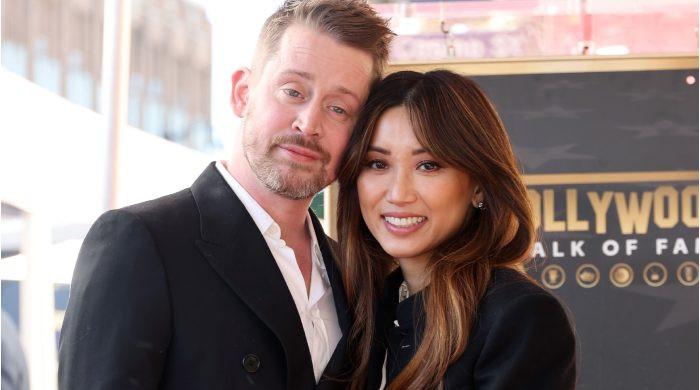- Russian Deputy Prime Minister hopes for continued cooperation with Pakistan.
- He hopes that India and Pakistan will find a diplomatic solution to various problems.
- Overchuk says Russia is ready to share know-how in various sectors.
Russian Deputy Prime Minister Alexei Overchuk will arrive in Pakistan today on a two-day visit during which he will lead a high-level delegation and hold meetings with President Asif Ali Zardari, Prime Minister Shehbaz Sharif and his counterpart Ishaq Dar.
The visit of the Russian dignitary was announced the day before by the Ministry of Foreign Affairs, which stressed the cordial relations based on goodwill, friendship and trust between the two countries.
Before his visit, Deputy Prime Minister Overchuk spoke exclusively with Geo news for more details on his trip to Islamabad.
Q1: How would you like to reflect on the current trajectory of Pakistan-Russia relations?
Pakistan is a long-standing partner of Russia. In the past, relations between our countries have had ups and downs, but in recent years they have seen a steady improvement.
Of course, Pakistan is also an important country in the South Asian region, making it part of the Global South. This is a region of the world with a growing population, rapidly growing markets, and countries with people seeking to improve their lives in a peaceful environment. The economic center of the world is shifting to the Global South.
Aware of these changes and their importance, Russia is working to strengthen its economic and trade relations with the countries of the region. We are building these ties on the basis of mutual respect and friendship.
Moscow and Islamabad maintain close dialogue. We have similar views on many issues on the international agenda, which opens up opportunities for a wide range of collaborations. There is great potential for business cooperation, as well as for advancing cultural and humanitarian agendas.
Our countries also work closely with the Shanghai Cooperation Organization. Our priorities in this area also largely coincide.
The purpose of my visit is therefore to discuss our current situation and consider ways to facilitate trade, as well as to take advantage of opportunities to enhance ties between our countries in bilateral and multilateral formats.
Q2: It seems that Pakistan-Russia relations have not reached the required pace, why?
There is a good atmosphere for advancing expanded cooperation between our countries. This process was significantly boosted by the meeting of our leaders within the framework of the [Shanghai Cooperation Organisation] The SCO Council of Heads of State met in Astana, Kazakhstan, in July this year. Bilateral cooperation in the business and humanitarian spheres is intensifying.
Our trade is facilitated by the increasing proportion of transactions settled in national and friendly country currencies, which in the first six months of 2024 exceeded 80%. In 2022, they accounted for less than 20% of foreign trade between our countries. This is a good indication of intentions to take our relationship further.
Q3: Are you satisfied with the current trade volume between the two countries?
In 2023, our trade volume reached $1.1 billion. For countries like Russia and Pakistan, such a mutual trade volume is, to say the least, quite modest. Our countries need to work more in this direction together and this is one of the main objectives of this visit.
In Russia, we focus on improving transport and logistics connectivity between North and South Eurasia, working on food and energy security issues, improving education, creating and developing science and technologies, forming new secure supply chains between Eurasian countries, and addressing issues of the climate agenda.
Russia and Pakistan have great potential to further develop many of these initiatives together for the mutual benefit of our peoples.
P4: What areas of economic, social and cultural cooperation need to be strengthened?
To create a better business environment and facilitate their economic development, Eurasian countries need to improve their connectivity. We need to have more and better trade routes connecting our countries. This will create the infrastructure base needed to increase trade and other relations and contacts.
The right conditions are being created for building direct transport and logistics connectivity between the countries of the Eurasian Economic Union, located in the north of Eurasia, and the countries of South Asia.
One of the priorities we are working on is the North-South International Transport Corridor, which will stretch from the Arctic Ocean and the Baltic Sea to the Persian Gulf and the Indian Ocean. This is a seamless international trade route that will connect the CIS countries with the Persian Gulf and South and Southeast Asia. We would like Pakistan to be a major participant in this ambitious initiative.
The implementation of this project will contribute to increasing the volume of bilateral trade, thereby creating new jobs and improving the income of our population.
Another important area where our governments could improve is facilitating direct contacts between people and communities. Russian regions are interested in developing direct links with people, communities, cities and regions in Pakistan.
The development of our social and cultural ties also contributes to this goal. We see Pakistan's interest in Russian education and are gradually increasing the number of state-funded internships for Pakistani students in Russian universities.
Russian language courses are currently offered in several cities in Pakistan. Russian language teachers are starting to teach students in Pakistan. This will help Pakistani students receive education in Russia, which will provide our nations with a better environment for strengthening economic, humanitarian and cultural ties.
Q5: The former Soviet Union helped Pakistan develop its oil and gas industries, build power plants and supply agricultural machinery. What else is on the horizon?
Russia has advanced know-how and technologies in traditional and clean energy, transport, agriculture, medicine and many other sectors of the economy. Our growing economy is demonstrating resilience, supported by one of the most efficient public administration systems in the world.
We would be willing to share our knowledge. One of the objectives of this visit is to improve our understanding of how our knowledge and experience can be useful to Pakistan, to establish contacts and then to facilitate dialogue between our countries and our peoples.
Q6: How do you view the perception that India matters in Pakistan-Russia relations?
India is a long-standing partner and friend of Russia. At the same time, Russia-Pakistan relations have intrinsic value. It is regrettable that Pakistan-India relations have deep contradictions. It is hoped that both countries will find a diplomatic solution to these issues.
Q7: To what extent does China currently matter in our bilateral relations?
We know that Pakistan is actively facilitating political, trade, economic, scientific, technical and armament cooperation with China.
Moscow and Beijing are developing relations based on a comprehensive partnership and strategic cooperation. The Russian president said that our relations are going through “the best period in their history and are guided by the principles of equality, mutual benefit and respect.”
We look positively on the advancement of mutually beneficial cooperation and friendship between our countries, based on the mutual balance of interests.
Q8: Do you think Pakistan's membership in the SCO is important for Russia?
Russia and Pakistan have always stood for a constructive approach to the development of the trade and economic agenda within the framework of the SCO. Together we have successfully worked to find balanced solutions to key issues on the SCO agenda.
We highly value the preliminary results of Pakistan's chairmanship of the SCO Council of Heads of Government. Pakistan has demonstrated coherence and continuity in the work of the Organization. We share common approaches on key issues on the agenda.
We welcome Pakistan's initiatives aimed at ensuring sustainable trade growth in SCO member countries. For example, one of the outcomes of the chairmanship is the plan to create a dialogue platform aimed at developing practical interaction between trade facilitation organizations and institutions. This will be an important step towards achieving the goals I have outlined above.
We hope that constructive cooperation with Pakistan will continue under the Russian presidency of the Council of Heads of Government of the SCO member states in 2024-2025. We hope that our Pakistani colleagues will support us in this work. It would be important to ensure continuity between our presidencies.
Q9: How do you view cooperation between Pakistan and the Eurasian Economic Union (EAEU)?
The Eurasian Economic Union is made up of five countries: Armenia, Belarus, Kazakhstan, Kyrgyzstan and Russia. Over the past ten years it has developed into one of the most integrated economies in the world, with free cross-border movement of goods, services, capital and labour, as well as a common market of 190 million people.
Unrestricted access to this large shared market enables our Member States to take advantage of opportunities that result in significant development of trade, visible economic growth and an improvement in the standard of living of our people.
The five countries are working together to expand our export markets and promote healthy competition within our common customs border. To achieve this, the EAEU is creating a network of free trade agreements.
It is believed that a free trade agreement between the EAEU and Pakistan could create a better basis for further boosting our trade and economic relations. We would like to explore this issue together and come up with a solution that is mutually beneficial for Pakistan and the five EAEU countries.
There are many different paths our countries can choose to take together and support each other in achieving their national goals. Now is truly the time to embark on this journey into the future.












